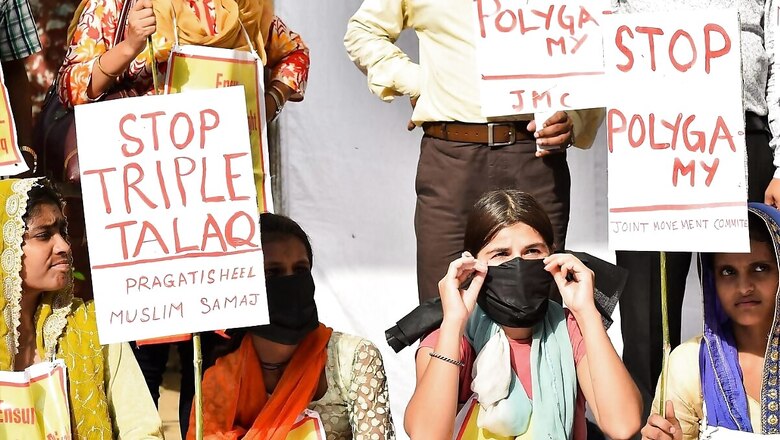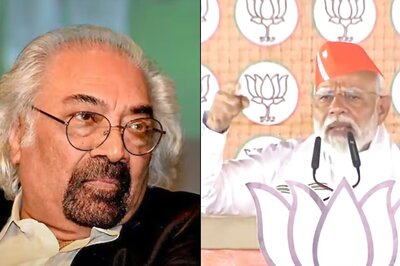
views
The Kerala High Court has clarified that ‘Talaq-E-Sunnat’, when not intended as instantaneous and irrevocable, cannot be categorised as ‘Talaq-ul-Biddat’, the form of divorce considered criminal under the Muslim Women (Protection of Rights on Marriage) Act, 2019.
The court, led by Justice A Badharudeen, examined the central question “whether there is instantaneous and irrevocable talaq in the present case” while hearing a case involving allegations that the husband (petitioner) had committed an offence under Sections 3 and 4 of the Act by pronouncing instantaneous and irrevocable talaq to his wife.
The petitioner challenged the proceedings against him in the court of Judicial Magistrate First Class. He faced allegations of violating the Act by issuing an instant and irrevocable talaq to his wife. He contended that his pronouncements — on December 23, 2021, July 13, 2022, and October 16, 2022 —were made in the form of ‘Talaq-E-Sunnat’, which is legally permissible, and not ‘Talaq-ul-Biddat’, the form considered illegal under the Act.
The petitioner’s counsel further argued that ‘Talaq-E-Sunnat’ is not instantaneous and allows for reconsideration, distinguishing it from ‘Talaq-ul-Biddat,’ which is both instantaneous and irrevocable. They cited previous court decisions, including Jahfer Sadiq E.A & anr. v. Marwa & anr. and Sajani A. v. Dr. B. Kalam Pasha and Anr., to support their argument that ‘Talaq-E-Sunnat’ should not attract the penal provisions of the Act.
On the other hand, the defacto wife’s (complainant) counsel argued that despite being pronounced on three separate occasions, the talaq in question should be deemed instantaneous due to the alleged failure to meet the necessary reconciliation attempts by arbiters as required under Islamic law. They referred to earlier judgments, including Kunhimohammed v. Ayishakutty and Sajani A. v. Dr. B. Kalam Pasha and Anr., to assert that the absence of these attempts rendered the talaq equivalent to ‘Talaq-ul-Biddat,’ thus attracting criminal liability under the Act.
The court examined the definitions and requirements of various forms of talaq as per the Act and Islamic law. The court noted that ‘Talaq-E-Sunnat’ allows for reconsideration and does not become absolute immediately. It emphasised that ‘Talaq-ul-Biddat’— which is instantaneous and irrevocable —is criminalised under Sections 3 and 4 of the Act.
“Pronouncement of talaq-e-biddat, (instantaneous and irrevocable talaq) is prohibited and punishable. But when pronouncement of talaq-e-sunnat is effected, no offence under Section 3 r/w 4 of the Act, 2019 would attract. Similarly when pronouncement of talaq-e-sunnat is attempted, but not legally completed for want of compliance of pre-requisites, the same would not tantamount to talaq-e-biddat to attract Sections 3 and 4 of the Act, 2019. That is to say, in such an instance, no talaq or divorce takes place and the marital relation will continue,” the court noted.
It further distinguished between different forms of talaq under Islamic law:
Talaq-Ahsan: A single pronouncement during a period of purity (tuhr) followed by abstinence from sexual intercourse for the iddat period.
Talaq-Hasan: Three pronouncements made during successive tuhrs, with no intercourse during these periods.
Talaq-ul-Biddat: Three pronouncements made during a single tuhr, either in one statement or separately, or a single pronouncement indicating an irrevocable divorce.
The court affirmed that ‘Talaq-E-Sunnat’ allows for reconsideration and does not become absolute until a specific period has elapsed. It ruled that an incomplete or improperly executed ‘Talaq-E-Sunnat’ does not convert into ‘Talaq-ul-Biddat.’
The court concluded that a talaq intended as ‘Talaq-E-Sunnat,’ even if found illegal for not meeting certain requirements, does not equate to ‘Talaq-ul-Biddat. It was held that the petitioner’s intention was to pronounce ‘Talaq-E-Sunnat,’ and thus, the proceedings based on ‘Triple Talaq’ claims were unfounded.
As a result, the court quashed the proceedings against the petitioner.



















Comments
0 comment